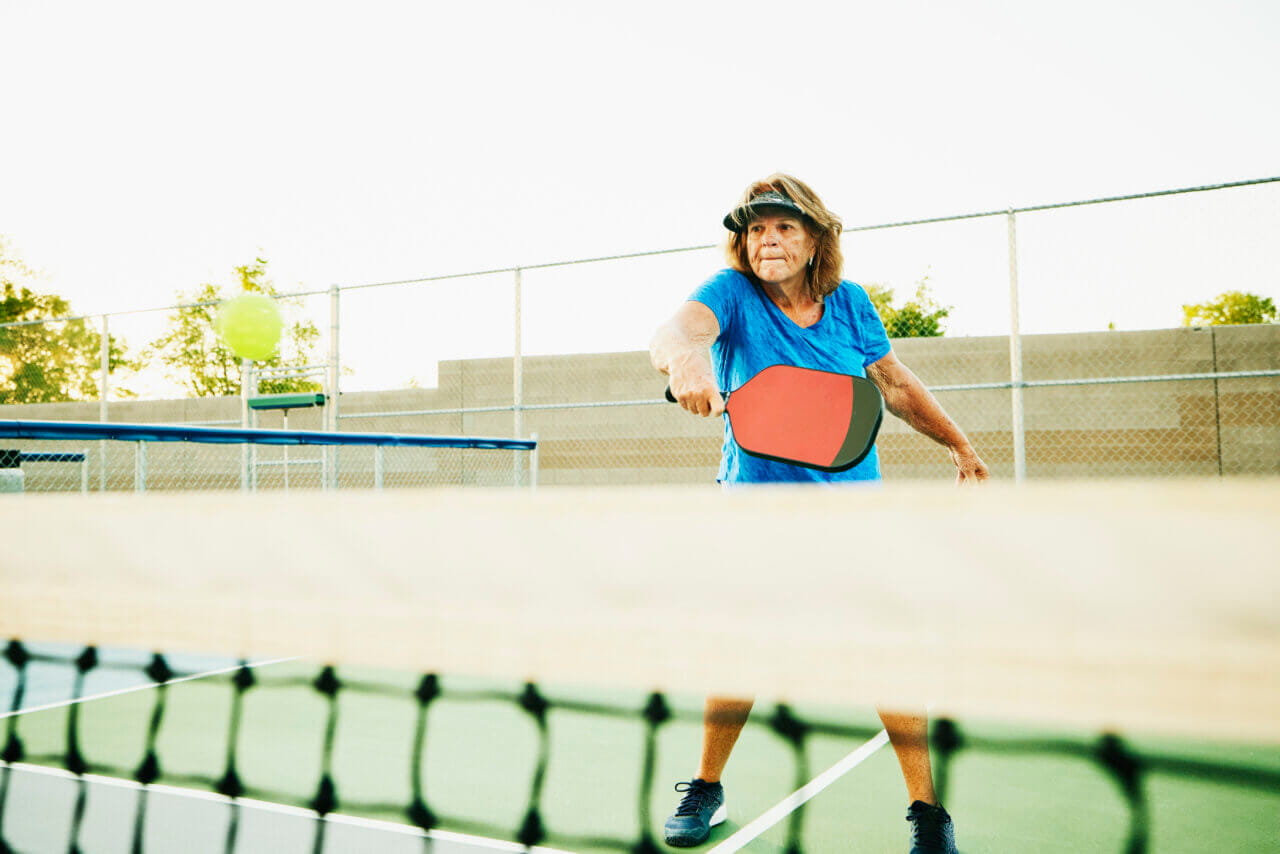7 Tips for Preventing Overuse Injuries in Pickleball
.jpg?rev=980cc6905c3d48b2b53003ec6636c886)
Pickleball is a sport that tends to have avid players who want to get on the court as often as possible. Playing frequently can be good for your overall fitness and mental health, but it can be tough on your body. Consequently, many picklers develop overuse injuries that sideline them for a time.
This article explains what overuse injuries are and provides tips for avoiding them. If you love the game and want to keep playing, it’s important information!
What Is an Overuse Injury?
The term “overuse injury” refers to damage to muscles, bones, joints, tendons or ligaments caused by repetitive stress or strain, as compared to acute injuries that occur because of a single event.
A good example of an overuse injury is a stress fracture of a bone in your foot. It’s a tiny crack that develops over time rather than from one forceful footfall or misstep. Compare that to a wrist fracture caused when someone trips, falls and applies excessive force to their arm.
However, injuries can straddle that line. For example, playing lots of pickleball (especially wearing shoes that don’t provide adequate support) can constitute overuse that stresses and weakens the muscles, tendons and ligaments of the ankle, leading to an ankle sprain (an acute injury).
Of course, the precise categorization of injuries isn’t important to pickleball players. What matters is how to prevent injuries that interrupt their enjoyment of the game.
How To Avoid Pickleball Overuse Injuries
Playing pickleball can lead to several different overuse injuries, including “pickleball elbow” (lateral epicondylitis), shoulder injuries like rotator cuff tendinitis and tendon impingement, wrist strains, knee sprains, Achilles tendinitis, ankle sprains and back pain.
Use these seven tips to reduce your risk of a pickleball overuse injuries:
- Ease into the sport. Start gradually and increase the duration and intensity of your play as your body adapts.
- Recognize and respect your limitations. This can be challenging for pickleball enthusiasts who often believe they can get to every ball and make every shot. However, pushing yourself too hard is a common reason for both overuse and acute injuries.
- Warm up before and cool down after playing. Stretching and light cardio before a match prepare your body for action, and stretching after helps prevent muscle soreness and other issues. It’s important to treat warm-up and cool-down activities as essential, even when you’re pressed for time.
- Use appropriate equipment. Ensuring you have shoes with adequate cushioning and support, a paddle with the right handle size for your hand, etc., can help you avoid overuse injuries.
- Pay attention to your form. The difference between a biomechanically correct swing, for example, and one that stresses structures in your wrist, elbow or shoulder can make all the difference in your injury risk. Be sure to learn and use the right techniques.
- Cross-train. Swimming, cycling and other activities use your muscles, joints, etc., in different ways that can help offset the stress and strain of motions and movements used in pickleball. Plus, cross-training is good for cardiovascular fitness, giving you more energy and endurance on the pickleball court.
- Listen to your body. You’ll hear this advice a lot in pickleball circles. Because people enjoy the game so much, they tend to “play through the pain” of an overuse injury. Unfortunately, that can worsen it and force the player to the sidelines for longer. Pay attention to your aches and pains, pause your play temporarily if appropriate and contact your healthcare provider about treatment if necessary.
Get Help With Pickleball Overuse Injuries From Baptist Health
Many overuse injuries resolve on their own with a little rest, icing and elevation of the affected area and over-the-counter pain relievers as directed. However, some require medical care.
Talk with your Baptist Health orthopedic surgeon about treatment options. You can use our online directory to find one.
Next Steps and Helpful Resources
Learn More About Orthopedic Care at Baptist Health
Is Pickleball Good Exercise?
Pickleball Pros and Cons for Your Health
Pickleball Injuries


